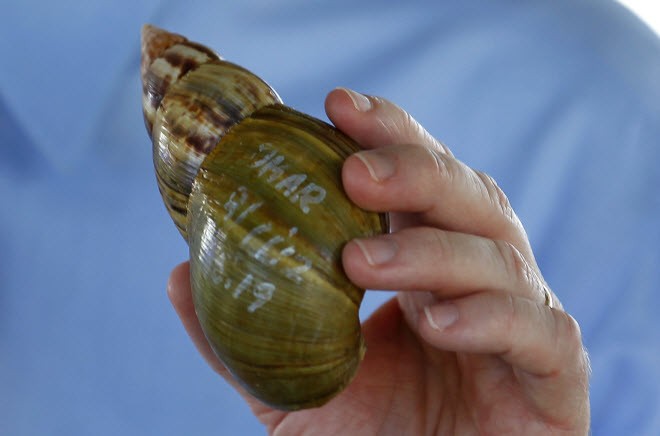A new study by scientists from the University of Florida says the "rat lungworm", a rare parasite in rats and snails, is more widespread in South Florida than what was originally thought.
Star Tribune reported that the scientists have just recently discovered the presence of the parasite in a number of snail species, including the giant African snail, in the Miami area. The discovery happened while doing an investigation on the death of an orangutan due to eating allegedly infected snails and falling ill afterwards. In 2004, another primate also died because of the same reason.
The parasite, with the scientific name Angiostrongylus cantonensis, is actually a health issue today in Hawaii and Asia, and just previously, it was discovered to have infected Florida and Louisiana.
The rat lungworm can be dangerous when consumed. It pushes its way to the central nervous system and eventually die there. The infection can lead to headaches, paralysis, and in rare cases, death. A number of people in Hawaii has actually fallen ill due to accidental ingestion of tiny snails on salads and other food products that have not been washed appropriately.
According to Robert Cowie, a research scientist from the University of Hawaii, the parasite thrives in subtropical climates. Cowie, who also did some studies on the lungworm, but has not contributed in the Florida journal, said that it has thrived in "warm parts of the United States."
"People are becoming more aware of it and scientists are looking for it and finding it," he added.
The lead author of the research, Heather Walden, however, cited that the parasite does not affect humans, unless the snail ingested is raw or undercooked. "As long as food is cooked and you wash your produce, you will most likely never ingest it."
The study was published in the "Journal of Parasitology".



























